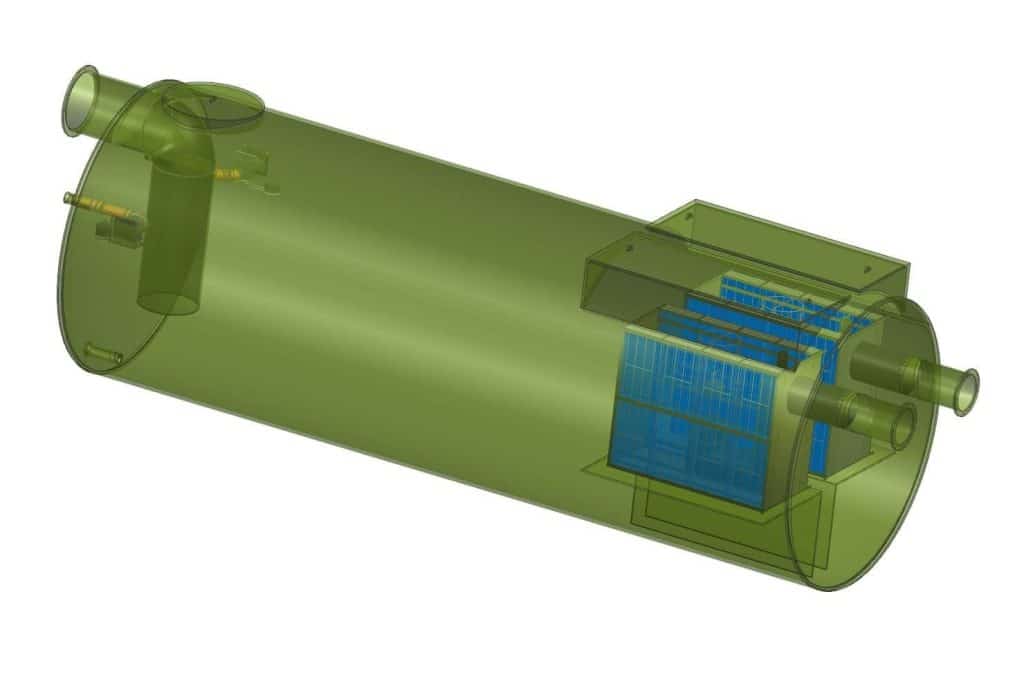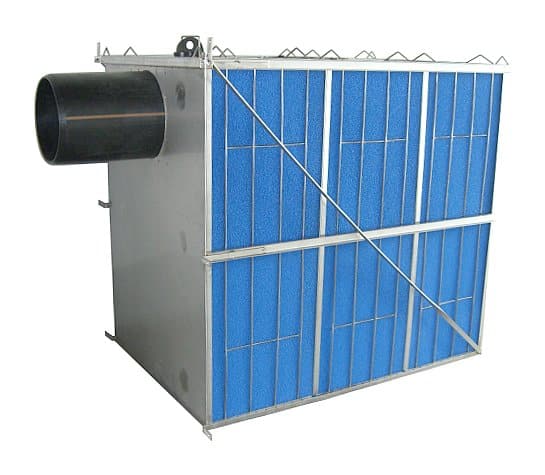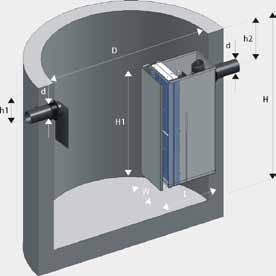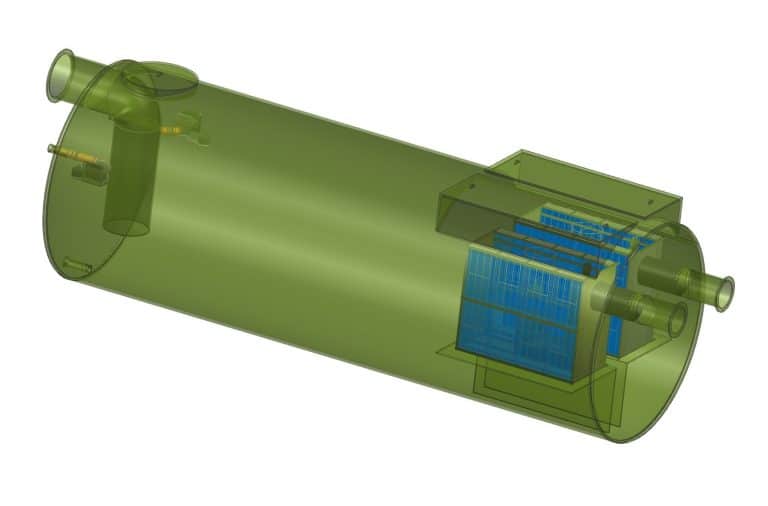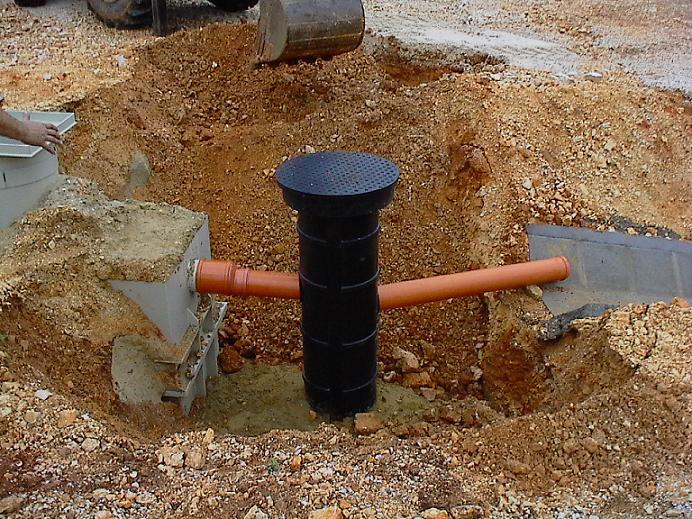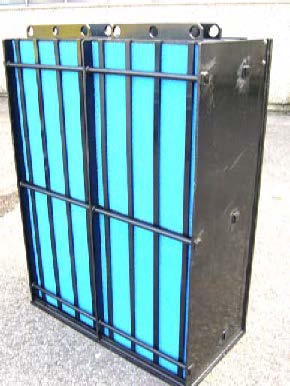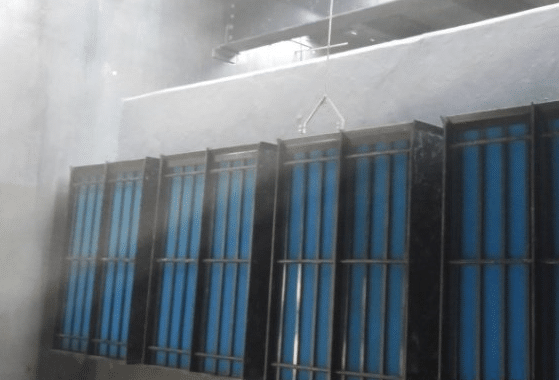Ever thought about Why are oil water separators used in industries? or how industries deal with oil and water in their wastewater? Oil water separators (OWS) are key in keeping our environment safe. They separate oil from water, helping prevent pollution and meet environmental rules. Places like steel mills, mines, and food factories need to manage their wastewater well.
OWS help keep our ecosystem clean and improve how processes work. This article will dive into how oil water separators work, why they’re important, and their benefits in different industries.
Key Takeaways
- Oil water separators are essential for removing oil and solids from industrial wastewater.
- Effective separation technology leads to improved environmental compliance.
- Industries such as oil and gas, manufacturing, and wastewater treatment benefit significantly from oil water separators.
- Freytech’s enhanced technology provides reliable oil recovery solutions.
- Utilizing OWS can reduce maintenance costs and environmental impact.
Understanding the Function of Oil Water Separators
Oil water separators are key in managing oil-water separation in many industries, especially in wastewater treatment. They are made to separate oil, grease, and solids from water. By using natural buoyancy, they keep contaminants out, making discharge cleaner and meeting environmental rules.
Definition of Oil Water Separators
Oil water separators are advanced tools that separate oil from water well. They use separation principles to make it easy to skim off contaminants. By using buoyancy to separate hydrocarbons, they solve the problem of contaminated water, helping the environment and economy.
How They Work
Oil water separators often use gravity to separate. When water with oil enters, the oil floats on top because it’s less dense. Designs like the Ecoline coalescing module make the process more efficient and easy to maintain. Regular checks and upkeep are important, especially in places with a lot of water flow.
Key Components
A good oil water separator has a coalescing filter, a separation chamber, and an outlet weir. Each part has a role in making the system work well. For example, separators with 8mm and 16mm spacings improve how well they work. The design’s complexity is also key, needing special knowledge for gravity-based systems.
Importance of Compliance with Environmental Regulations
Following environmental rules is key for industries that produce wastewater with oil. Knowing these rules helps keep operations safe and cuts down on pollution. A big rule in North America is the hydrocarbon discharge limit. It says industries can’t release more than 10 parts per million (PPM) of oil.
This rule shows how important it is to use tools like oil water separators (OWS). These tools help meet strict rules.
North American Hydrocarbon Discharge Limits
In North America, the limit for oil in wastewater is 10 PPM. It’s hard to meet this for some industries, especially when their wastewater has lots of oil. For example, air compressor condensate might have 300 PPM of oil, way over the limit.
Using oil water separators helps lower oil levels in wastewater. This makes it easier for companies to follow environmental rules.
Consequences of Non-Compliance
Not following environmental rules can cost a lot of money. Breaking EPA rules can lead to fines of up to $25,000 a day. If it happens again, fines can go up to $50,000 a day. And if it’s a known problem, fines can reach $100,000 a day.
Not following rules can also cause businesses to stop working. Agencies might order them to shut down until they follow the rules. This can cost a lot of money, not just in fines.
Role of OWS in Meeting Standards
Oil water separators are crucial for meeting environmental rules. They help treat wastewater with oil, preventing big fines and keeping the environment clean. Companies that use these separators show they care about the planet.
This can make them more attractive to customers who care about the environment. In the end, using oil water separators helps protect our water and keeps it safe for the future.

Advantages of Using Freytech Oil Water Separators
Freytech oil water separators improve process efficiency and meet environmental standards. They use advanced technology for effective oil-water separation. This helps various industries manage waste better.
Enhanced Coalescing Technology
Freytech’s separators use advanced coalescing technology. This technology helps collect and separate oil from water more efficiently. It makes oil droplets bigger, making separation easier.
This approach ensures high oil recovery and purity. It helps meet environmental standards, supporting effective waste management in industries.
Separation Efficiency Statistics
Freytech oil water separators have impressive performance stats. They can achieve up to 99.7% purity in oil collection. This makes them reliable for oil-water separation.
An optional automatic oil skimmer boosts efficiency. It captures non-emulsified oils down to 5 PPM and emulsified oils to 0.1 PPM. These results meet or exceed strict hydrocarbon discharge limits.
Capability to Handle Different Hydrocarbons
Freytech’s oil water separators handle various hydrocarbons. They work with light liquids like gasoline and diesel, as well as heavy oils. They offer nine specialized models for different needs.
This flexibility ensures compliance with environmental regulations. It also helps reduce waste management costs, whether in high-volume operations or trace hydrocarbon facilities.
Industries that Benefit from Oil Water Separation
Oil water separators are key in many industries. They help manage wastewater well and support sustainability. These systems make sure processes follow environmental rules, especially where oily water is a big issue.
Oil and Gas Industry
In the oil and gas world, oil water separation is crucial. It keeps wastewater from oil and gas work within legal limits. This protects nature from harm. Companies use top-notch systems to work efficiently and meet green goals.
Manufacturing and Industrial Operations
Manufacturing places often face oily water from their work. Oil water separators treat this water well, cutting down on harm to the environment. This step also helps meet rules and saves money by reducing waste.
Wastewater Treatment Facilities
Wastewater treatment plants use oil water separators as a first step. These systems cut oil levels to under 15 ppm, meeting strict rules. By using these systems, plants work better and help the environment by releasing cleaner water.
How to Get Started with Freytech Inc.
To learn more about Freytech Inc.’s oil-water separation systems, call us at +1 (305) 372-1104. Our team is ready to help with your environmental compliance needs. We’ll find the best custom solutions for your business.
Contact Information
Reaching out is the first step to better hydrocarbon management. Freytech Inc. offers detailed advice for your industry. We help you meet environmental standards and improve separation efficiency.
Consultation Process
In our consultation, we look at your specific oil-water separation needs. This meeting helps us understand your operations. Then, we suggest the right model from our lineup, like EcoLine and EcoSorp, for top performance.
Custom Solutions for Your Needs
Freytech is known for its custom solutions across different industries. Whether it’s for food or industrial use, our separators meet strict standards. They ensure low oil separation levels, keeping your operations green and compliant.
